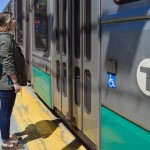
Despite statewide efforts to address the opioid epidemic, estimates show that opioid-related deaths have increased since last year, according to data released Wednesday from the Massachusetts Department of Public Health.
The opioid overdose death toll already rose by 63 percent from 2012 to 2014, according to a Wednesday press release. The most recent data reflects an estimated increase of around 6 percent since the previous year.
Scott Zoback, spokesperson for the DPH, explained how the department uses a new predictive technique to estimate this year’s number of opioid-related deaths.
“That predictive modeling uses information that we are able to collect from now as well as past trends to run basically a model of what we estimate those deaths to be,” Zoback said. “It used to be that data would sometimes be as far as two years old before it was released.”
Zoback said the data points to the urgent necessity to make treatment options readily available to those affected in Massachusetts.
“We need to continue to take action — prevention, intervention, treatment and recovery — to make sure that the people who need help are getting the help they need,” Zoback said.
Massachusetts Gov. Charlie Baker has been working to fight the opioid epidemic in recent months. He stressed the importance of solving the epidemic.
“This data reminds us that we need to use every tool at our disposal to fight back against this public health crisis, which continues to have a drastic impact in all corners of the Commonwealth,” Baker said in the release. “Our proposed legislation introduced much-needed reforms to create new pathways to treatment and help us fight the deadly opioid epidemic.”
Said legislation includes adding 194 treatment beds throughout the Commonwealth, requiring pharmacists to enter data within 24 hours into the Prescription Monitoring Program and new Division of Insurance guidelines to require coverage of clinical stabilization services, the release stated.
Boston Mayor Martin Walsh has also taken action against substance abuse. This month he was named the chair of a nationwide task force on substance abuse, the Daily Free Press reported Oct 14.
Zoback emphasized that Boston is not the only city affected by opioid abuse in Massachusetts.
“What we are really seeing is that it is everywhere. It’s rural areas, urban areas,” Zoback said. “This is truly a disease that affects everyone, regardless of where they live.”
Several residents said they were not aware of the extent of opioid use in the Commonwealth.
Scott Talley, 30, of Jamaica Plain, said he had previously seen the epidemic’s affects first-hand.
“We used to live at the corner of Commonwealth Avenue and Harvard Avenue and there were a lot of drug addicts in that corner of Allston,” he said. “I’m not surprised by it.”
Naveed Daneshmand, 22, of Fenway was unaware of the rising death toll.
“It’s definitely surprising,” he said. “I had no idea drug-related deaths were on the rise, so that’s shocking.”
Kennedy serves as a city associate for the Daily Free Press. A freshman, she studies English with a minor in philosophy. As a journalist, Kennedy shows special interest in crime and local politics. You can follow her on Twitter at @stellarkenn.














